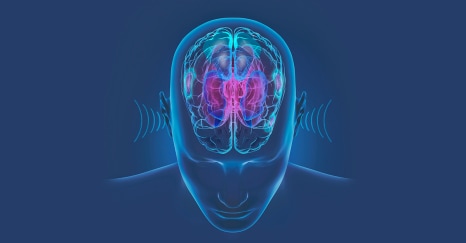When we think hearing, we generally think ears, but actually our ears and our brain work together with the brain doing most of the work.
Our ears pick up the sound and send it through the outer, middle and inner ear and then convert to nerve impulses and send it to the auditory center of the brain.
Your brain uses the information it receives to determine direction of sound; to match the sounds to those stored in your memory, and then to decode that information into something meaningful. Your brain also helps you to focus in on conversations and to separate speech from noise.
Untreated hearing loss negatively impacts this connection between your ears and your brain by delivering incomplete information for the brain to process. This makes it more difficult for individuals to follow conversations, sort speech from noise and also affects short term memory. Overall hearing loss can have a significant impact on your quality of life.
Some experts believe that interventions like professionally fitted hearing aids could potentially delay or prevent dementia. Other researchers also suggest including broader interventions such as REHA.
If you or a loved one is experiencing symptoms of hearing loss, schedule an appointment for a hearing evaluation. This can be the first step to improving your quality of life and maintaining an active lifestyle.
Learn More:
https://www.oticon.com/your-hearing/hearing-health/brainhearing-technology
Request an Appointment:
Request an Appointment | Online Booking

